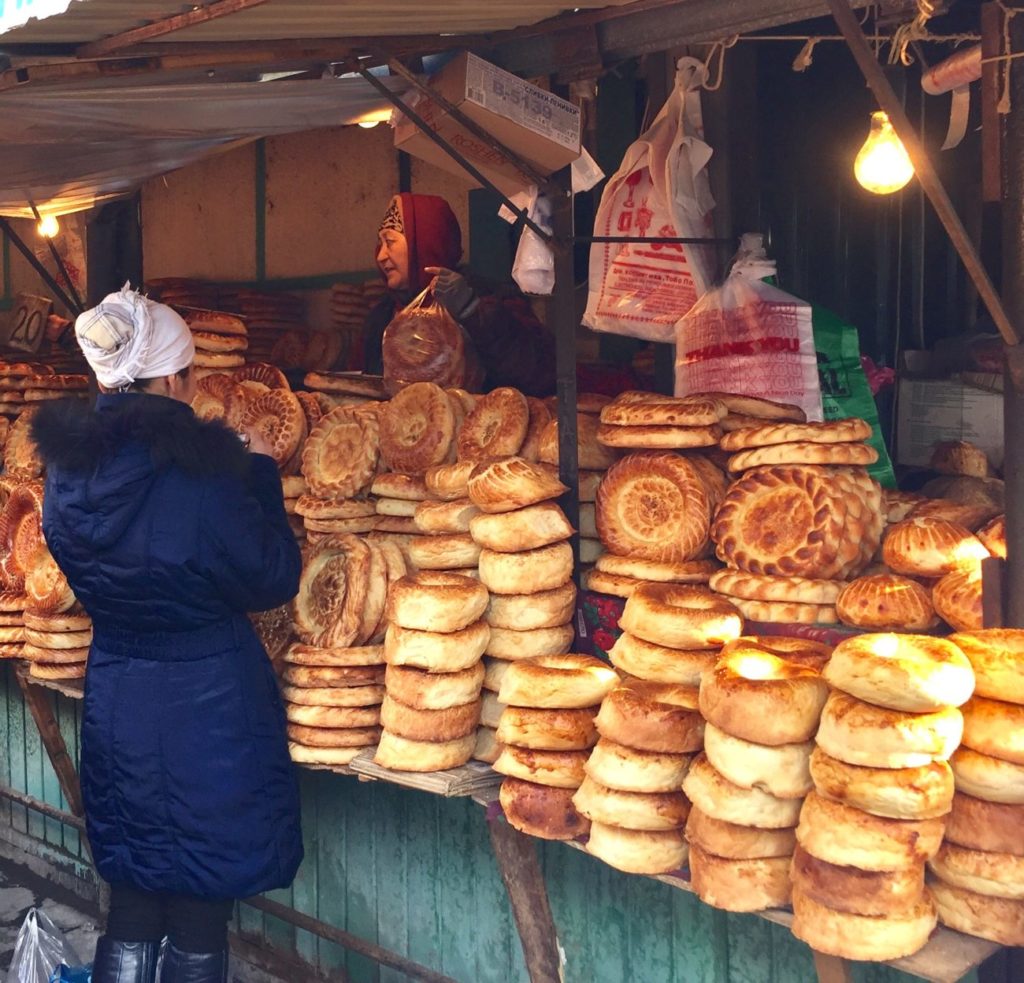Between 2019 and 2020, poverty in Kyrgyzstan increased by 5.2% as more and more Kyrgyz people found themselves in extreme poverty. One of the causes of this rise in poverty was the closure of borders due to Covid-19, which prevented the people of Kyrgyzstan from working abroad and providing for their families at home. Nevertheless, it must be noted that the study is flawed: a great number of workers from Kyrgyzstan work informally, making official statistics unreliable. This article was originally published on Novastan’s French website on February 8, 2022. While poverty in Kyrgyzstan steadily decreased from 2016 to 2019, between 2019 and 2020 it jumped by 5.2%, from 20.1% to 25.3%. Consequently, one in four families lives below the poverty line, as reported in November 2021 by the Kyrgyz media agency 24.kg. These statistics come from the National Statistical Committee of the Kyrgyz Republic (NSC), which conducted a study on a sample of 4 993 households. The results show stark disparities between regions. Poverty increased by 10.3% in north-western Jalal-Abad region, compared to 4.9% in Bishkek, the capital. In Osh, the nation’s second-largest city, it fell by 6%.
Before 2020, the poverty rates reported by the NSC were in decline: from 2017 to 2019, the percentage of Kyrgyz citizens in poverty fell from 25.6% to 20.1%. In 2020, the number of people in poverty in Kyrgyzstan returned to levels close to those of 2016 at 25.3% on average. However, in this period some regions, such as Bishkek, saw huge change: poverty almost doubled from 9.8% in 2016 to 16.8% in 2020. Conversely, the Talas region in the northwest of the country saw its poverty rate drop from 18.1% in 2016 to 12.5% in 2020, the lowest in Kyrgyzstan.
“Poverty Gap” and “Extreme Poverty”
To calculate the “rate of extreme poverty” in the country, experts at the NSC “estimated a sum of money that should match the “base consumption basket,” meaning the amount of food necessary for someone to live off,” explains Illiias Mamadiiarov, researcher at the French Institute for Central Asian Studies (IFEAC). He adds that “all those with a salary below 38 000 som (£355.42) are considered to be poor, and those who have less than 19 000 som (£177.71) are in extreme poverty.” While the rate of extreme poverty fell from 0.8% of the population in 2017 to only 0.5% in 2019, by 2020 it had reached 0.9%.
The Mobility of Migrant Workers Has Been Greatly Reduced
The closure of borders in March 2020 due to the growing Covid-19 pandemic could explain the increase in the level of poverty for the same year. As most Kyrgyz live off agricultural production, it is common to work abroad once the harvest season is over. “Poverty is seasonal, there are more residents from rural areas who decide to travel to Russia after autumn in search of work”, claims Illiias Mamadiiarov. From abroad, these migrants send money to their families in Kyrgyzstan, who depend on it to survive. According to data from the World Bank, such transfers of money from abroad accounted for 31.3% of the country’s gross domestic product (GDP) in 2020. Kyrgyzstan ranks third in the world among countries dependent on remittances. Read more on Novastan:More Russian passports, fewer labour migrants: Central Asian migration to Russia in 2020 However, with the closure of borders in March 2020, Kyrgyz people forced to stay in Kyrgyzstan have been unable to support their loved ones, as Roman Mogilevski, a researcher at the University of Central Asia (UCA) explains in a study on the impact of Covid-19 on migration in December 2020. Moreover, those stranded abroad found themselves in a similar position. “The isolation enforced in Russia and Kazakhstan at the end of March 2020 has led to a decrease in the jobs available for migrants, including those coming from Kyrgyzstan”, Illiias Mamadiiarov highlights.
Drop in Transfer of Funds to Kyrgyz Families
According to Roman Mogilevski, the drastic decline in the transfer of money into Kyrgyzstan has caused the country’s GDP to plummet by 5%. “The remittances between January and July 2020 were 10% scarcer than those of January to July 2019,” he explains. This situation has brought about a rise in poverty, particularly in rural areas. The study carried out by the NSC confirms this trend. Poverty in rural areas has increased by 6.1%, compared to 3.6% in cities. Although migrations have since restarted, “a mobility problem continues to exist because the only way of entering Russia is via aircraft,” notes Illiias Mamadiiarov. To get to Russia, one must go through Kazakhstan, which is yet to reopen its borders. “Many families cannot afford to travel by plane, tickets are expensive,” he adds.
An Informal Economy that is Difficult to Measure
These statistics must be viewed with caution. Out of 6.7 million inhabitants, the study was carried out on just 4 993 households. Moreover, it is very difficult to produce representative statistics because of the informal nature of Kyrgyzstan’s economy, as outlined by Kanat Tilekeïev, researcher at UCA, in a study published in June 2021. According to the NSC, approximately 23.5% of the national economy was affected by this phenomenon in 2019. Consequently, almost 71.8% of workers in 2019 were undeclared, a proportion that was likely to be similar in 2020. Read more on Novastan: Kyrgyzstan: Poverty hides behind Bishkek’s smog Therefore, a portion of the revenue circulating in Kyrgyzstan is not counted in official economic statistics. However, Kyrgyz people who work off the books remain in a precarious position. More than half do not have access to fundamental rights in the workplace and will not be able to benefit from state welfare after retirement. Kanat Tilekeiev is clear that “due to a low pension, the fraction of the population that will have to work longer than the age of retirement in order to survive will most likely increase.”
The Government is Committed to Reducing Poverty
Responding to these developments, the Kyrgyz government announced the introduction of a new system to fight poverty this year. At a meeting on 28 January, Deputy Minister of Labour and Social Development Nurdoolot Bazarbaev declared that Kyrgyzstan wanted to move from passive to active measures as reported in the Ministry’s press release. “The current social system is expensive but not efficient enough,” he acknowledged. This model is based on the “Food for Work” system, as 24.kg explains. “Poor and low-income families and unemployed citizens will have the opportunity to improve their family’s quality of life by learning new, more efficient farming practices for their farms, as well as development of self-entrepreneurship,” declared Nurdoolot Bazarbaev. How effectively this plan will be implemented remains to be seen.
Written by Romane Haquette
Edited for Novastan
Edited by Emma Jerome and Timur Khan
Translated from French by Elise Lloyd
For more news and analysis from Central Asia, follow us on Twitter, Facebook, Telegram, Linkedin or Instagram.
 In Kyrgyzstan, one in four families lives below the poverty line
In Kyrgyzstan, one in four families lives below the poverty line 



